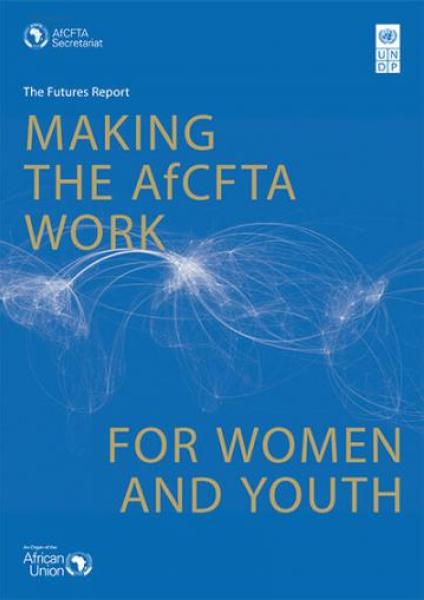At the same time, the EU’s Global Gateway seeks to connect support to trade corridors with investments and access to critical raw materials. Against this backdrop, the AfCFTA Protocol on Investment represents an important step towards creating an environment conducive to investment within the African Continent. Nonetheless, such formal, legal mechanisms must be implemented and used to have an effect, raising questions for policymakers in Africa and their partners about how best to build on and support such mechanisms to promote the underlying goal of African economic transformation.
- Francis Mangeni, Coordinator of Regional Advisors on the African Continental Free Trade Area, Secretariat of the AfCFTA
Francis referred to the report
UNDP (2020) The Futures Report: Making the AfCFTA Work for Women and Youth #102 p.
The need for intra-African cross-border trade in food cannot be overemphasized. In the European Union, intra-EU trade of agri-food products represents 72.7 percent. In sharp contrast, trade of food products within African countries accounts for a meagre 13 percent of total trade, dominated by small-scale maize, tea, tobacco, palm oil and sugar traders, as opposed to large-scale food conglomerates. The African countries that lead the way are South Africa, the major exporter and importer in the inter-African trade segment, followed by Egypt, Uganda, Kenya and Libya. (page 51)
Cross-border trade of value-added agricultural products is even lower than that of food products in Africa despite the growing focus on value addition by small and medium-sized enterprises (SMEs) across the continent. High costs of doing business, limited access to finance and restrictive regulations continue to limit the impact that SMEs have on value addition in the sector. (page 52) - Professor Dirk Willem te Velde, Director, International Economic Development group, Principal Research Fellow, ODI
- Suzy Nikièma, Director Investment, IISD
- Professor Felix Okatch, Chairman Emeritus, Association of Professional Societies in East Africa (APSEA)
- Moderated by Bruce Byiers, ECDPM


No comments:
Post a Comment